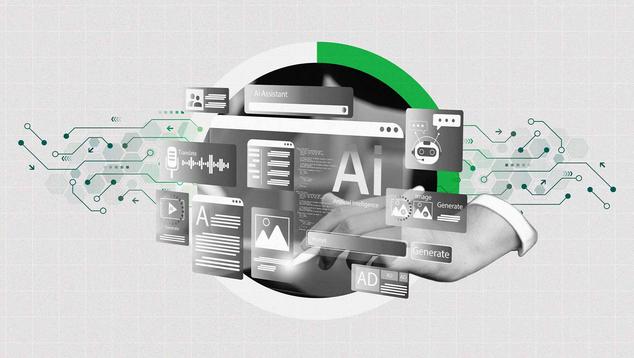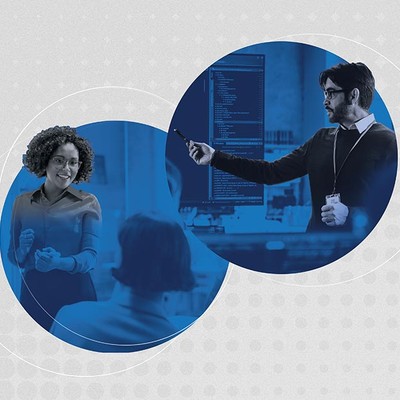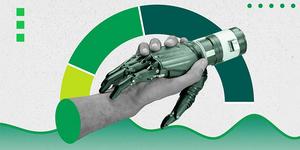WASHINGTON, D.C. — About a third (31%) of Americans say they trust businesses a lot (3%) or some (28%) to use artificial intelligence responsibly. Americans' trust in the responsible use of AI has improved since Gallup began measuring this topic in 2023, when just 21% of Americans said they trusted businesses on AI. Still, just under half (41%) say they do not trust businesses much when it comes to using AI responsibly, and 28% say they do not trust them at all.
These findings from the latest Bentley University-Gallup Business in Society survey are based on a web survey with 3,007 U.S. adults conducted from May 5-12, 2025, using the probability-based Gallup Panel.
Most Americans Neutral on Impact of AI
When asked about the net impact of AI — whether it does more harm than good — Americans are increasingly neutral about its impact, with 57% now saying it does equal amounts of harm and good. This figure is up from 50% when Gallup first asked this question in 2023. Meanwhile, 31% currently say they believe AI does more harm than good, down from 40% in 2023, while a steady 12% believe it does more good than harm.
The decline from 2023 to 2025 in the percentage of Americans who believe AI will do more harm than good is driven by improvements in attitudes among older Americans. Generally speaking, older Americans are less concerned than younger Americans when it comes to AI’s total impact on society. While skepticism about AI and its impact exists across all age groups, it tends to be higher among younger Americans.
Majority of Americans Are Concerned About AI Impact on Jobs
Those who believe AI will do more harm than good may be thinking at least partially about the technology’s impact on the job market. The majority (73%) of Americans believe AI will reduce the total number of jobs in the United States over the next 10 years, a rate that has remained stable over the past three years in which Gallup has asked this question.
Younger Americans aged 18 to 29 are slightly more optimistic about the potential of AI to create more jobs. Fourteen percent of those aged 18 to 29 say AI will lead to an increase in the total number of jobs, compared with 9% of those aged 30 to 44, 7% of those aged 45 to 59 and 6% of those aged 60 and over.
Bottom Line
As AI becomes more common in personal and professional settings, Americans report increased confidence that businesses will use it responsibly and are more comfortable with its overall impact.
Even so, worries about AI’s effect on jobs persist, with nearly three-quarters of Americans believing the technology will reduce employment opportunities in the next decade. Younger adults are somewhat more optimistic about the potential for job creation, but they, too, remain cautious. Still, concerns about ethics, accountability and the potential unintended consequences of AI are top of mind for many Americans.
These results underscore the challenge businesses face as they deploy AI: They must not only demonstrate the technology’s benefits but also show, through transparent practices, that it will not come at the expense of workers or broader public trust. How businesses address these concerns will play a central role in shaping whether AI is ultimately embraced or resisted in the years ahead.
Learn more about how the Bentley University-Gallup Business in Society research works.
Learn more about how the Gallup Panel works.





